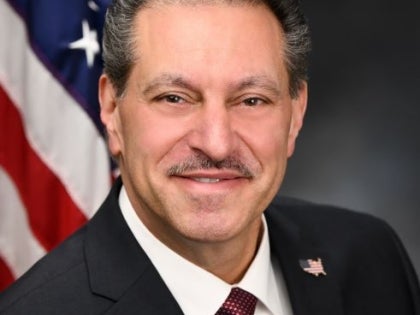
Addabbo Hosts Fourth Naloxone Training in a Continuing Series Over the Last Year
August 5, 2024

There was a great turnout for the Naloxone training session.
In an effort to educate the public about opioid addiction and overdose, through sponsoring lifesaving events, Senator Joseph P. Addabbo, Jr. held the fourth in a series of Naloxone (Narcan) trainings in partnership with Acacia Network, an organization affiliated with J-CAP.
Over 60 people attended the event on July 31, 2024, which was held at AKAL Care – Social Adult Day in South Ozone Park with support from the Lions Club of Richmond Hill – South Ozone Park. Participants learned how to recognize the signs of an opioid overdose and how to respond using Naloxone, also known by the brand name Narcan. Upon completion of the course, participants received a certificate and a Naloxone kit.
"It is crucial for all members of our community to learn how to administer Naloxone. In the event of an opioid overdose, being equipped with this knowledge and tool can mean the difference between life and death,” Addabbo said. “By empowering ourselves with this information and skill, we can actively contribute to saving lives and combating the devastating impact of opioid addiction in our society."
The training was led by Acacia Network representatives: Luis Laboy, the senior administrator of residential programs, and Dr. David Collymore, the chief medical officer. They were joined by Eduardo Santiago, a certified recovery peer advocate, who helped demonstrate how to administer Naloxone to someone in a lying down position, and Arturo Hernandez, an outreach coordinator.
Laboy said signs of an opioid overdose include when a person stops breathing and their lips and fingertips start to turn blue. The first step is to check for responsiveness by rubbing one’s knuckles up and down the sternum of the victim. If there is no response 911 should be called immediately; inform them that there is an unresponsive person and to send help.
Laboy emphasized that it is important to call 911 immediately because Naloxone only works for 30 to 90 minutes. It is a nasal spray administered by spraying the substance into one of the victim’s nostrils while pushing down on the device’s red plunger. The person should be revived right away but if there is no response after 60 seconds, a second dose should be administered.
Laboy said after the person gains consciousness they may want to leave or get high again, however he stressed the importance of having the person wait to get medical attention because of Naloxone’s temporary activation time.
In addition, if the person takes too many opioids again after their episode they can overdose again. Laboy advised that if someone is going to take opioids that they not be alone. They should have Naloxone on them or have a friend with them that carries Naloxone just in case of an accidental overdose.
In 2022, 3,026 New Yorkers died of a drug overdose, a 12% increase from 2021 (2,696 deaths), and the highest number since reporting began in 2000, according to a data brief by the NYC Department of Health.
Opioids include OxyContin, fentanyl, methadone, and Vicodin. Naloxone can also reverse overdoses from street drugs like heroin. Naloxone is an antidote for opioid overdoses, and it can temporarily reverse the effects of opioids by binding to the same receptors in the brain. The nasal spray form of naloxone is a convenient and easy-to-use method of administration.
One of the participants asked how to tell the difference between a diabetic having a hypoglycemic episode and an opioid overdose and Collymore said the diabetic would still be breathing. If there is uncertainty about whether someone is experiencing an overdose, it is advised to call 911 and administer Naloxone anyway. Naloxone does not cause harm if it is not an overdose situation, Laboy and Collymore said. Naloxone only reverses opioid overdoses; it does not have an effect on any other types of drug overdose.
“Learning how to use Naloxone and having it on hand is a simple and effective way to potentially save the life of a friend or loved one,” Addabbo said. “I am proud to continue working with J-CAP and Acacia to bring this fast, simple, yet important program to the community. I also want to thank the Richmond Hill South Ozone Park Lions Club and AKAL Care – Social Adult Day Care for their support.”
Addabbo presented Laboy and Collymore each with a citation to thank them for their continued partnership in these trainings. The duo responded by praising Addabbo’s continued leadership in facilitating the events.
"The Lions of Richmond Hill – South Ozone Park Lions Club is deeply committed to supporting initiatives that enhance the wellbeing of our community. Our collaboration with Senator Addabbo and the Acacia Network for this Naloxone training is a testament to that commitment,” said Romeo Hitlall, representing the Lions. “We believe that by educating individuals on how to respond to opioid overdoses, we are equipping them with the knowledge and tools necessary to save lives. I'm proud to stand alongside our partners in this crucial effort to combat the opioid crisis and promote a safer, healthier community for all."
Senator Addabbo is planning to continue Naloxone/Narcan training around his district, into the Fall season.
Share this Article or Press Release
Newsroom
Go to Newsroom